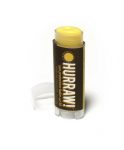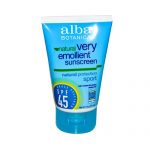Men's Sun Protection & Tanning
Shop vegan and cruelty-free men's sun protection & tanning products. All personal care products in our store are 100% free of animal-derived materials, ingredients, by-products and testing.
Men's Sun Protection & Tanning
What is vegan and cruelty-free sunscreen, lotion and tanner?
The term “vegan” with regard to sun care and tanning products, refers to those that do not contain animal derived or sourced ingredients. The term “cruelty-free” means a product and its ingredients aren’t tested on animals. Sunscreen, after-sun lotion, self-tanner and other sun care products that are both vegan AND cruelty-free if they don’t have any animal derived or sourced ingredients, and none of the ingredients are tested on animals.
Are there actually animal-derived ingredients in my sunscreen?
It can be a surprise to some people that there are actually animal derived and sourced ingredients on seemingly innocent products like sunscreen, but disappointingly enough, there are. Here’s a list of ingredients that can be found in non-vegan sunscreens (and other types of moisturizers and oils):
- Collagen/Elastin: Protein found in an animal's connective tissue.
- Squalene: Gooey oil squeezed out of shark livers.
- Lanolin: Comes from domestic sheep breeds that are raised specifically for their wool.
- Estradiol: Derived from the urine of pregnant mares.
- Bone Meal: Ground up bones of slaughterhouse animals.
- Tallow: Created by boiling down the carcasses of animals.
- Hyaluronic Acid: Typically extracted from rooster combs.
- Stearic Acid: Is a fatty acid most commonly derived from the lard of animals.
Please Note: Some of these ingredients (such as stearic acid and hyaluronic acid) can come from plant or laboratory sources. However, a label won’t necessarily divulge if some of the ingredients are derived from plant or animal sources, so make sure you’re buying from a trusted vegan company if you see these ingredients on labels.
What companies make vegan/cruelty-free sunscreen and self-tanner?
There are several companies that make sunscreen, self-tanner and after-sun lotion that don’t use the above-listed ingredients, or any that are sourced from, derived from, or tested on animals. These companies include:
- HEMPZ
- Alba Botanica
- Lavanila
- Aubrey Organics
- 3rd Rock Sunblock (certified cruelty-free, but uses beeswax in their sunscreen)
Please Note: This is not an inclusive list; we will add more companies after we hear back from some that we’ve contacted.
Why should I buy sun care products that are vegan and cruelty-free?
Why hurt a sweet little animal in a lab, or use a dead animal’s fat when vegetable fat can be used? The fact is that every sunscreen and tanning product can be effectively made without animal derived and sourced ingredients, and without those that are tested on animals. Buying vegan and cruelty-free products means you’re supporting products that don’t use ingredients forcefully taken from animals, or are forcefully tested on them. Besides, do you really want to use a product with animal urine or placenta in it?
Are vegan & cruelty-free sunscreen and tanning products expensive?
In general, vegan and cruelty-free sunscreen,after-sun lotions, tan enhancers and other sun care products are not any more expensive, or any less-expensive, than products that include animal sourced and derived ingredients and/or were tested on animals. Just like non-vegan/non-cruelty-free products, there are differences in the quality of the ingredients used, differences in the manufacturing processes, and different brand names behind the products; all of these factors can make prices can vary quite a bit from one product to the next. Some sun care and tanning products are very inexpensive, some have a steep price tag, and most fall somewhere in between.
Should I get rid of any non-vegan products that I already own?
This is a controversial topic within the vegan and cruelty-free community, but we believe there is no right or wrong answer to this question. As you adapt to a vegan and cruelty-free lifestyle, you’ll find that ridding your life of animal products for good can be a long process, because of their prevalence in so many of today’s products. In our opinion, it’s up to you to decide what you can afford to replace immediately, what can be given away, and what you’re no longer comfortable using once you learn of its gruesome origins. Some options might be to give away any unused or gently used products to friends and family, or use products (if you’re comfortable doing so) until they have run out or otherwise outlived their usefulness. Simply throwing them away is generally considered wasteful, and we would recommend turning to that only as a last resort.
How do you choose which companies to list in your store?
We keep a growing list of companies that we find, or are suggested to us, whose entire line of sunscreen, tanners and related products seems to be completely vegan-friendly and cruelty-free. We get in touch with these companies to find out which products of theirs, if any, use animal derived or sourced ingredients, or have ingredients that are tested on animals. If they assure us that their sun care and tanning products are cruelty-free and suitable for vegans, and they can be bought on Amazon, then we list those products here for your convenience.
How to calculate the SPF that’s right for you
SPF (Sun Protection Factor) is a measurement of protection from sunburn, which is primarily caused by the sun's ultraviolet-B (UVB) rays. Here's the formula to calculate which SPF you should use:
- SPF x the time it takes to burn = time needed to receive the same dose of UV that you'd have gotten if you hadn't used sunscreen.
In other words, if your skin would normally burn after 30 minutes in the sun, an SPF 15 sunscreen would theoretically let you stay in the sun for 450 minutes without burning (15 SPF x 30 minutes).
Please Note: The most important part of sunscreen is applying enough sunscreen, not the SPF factor.
How much sunscreen should I apply…and how often?
The American Academy of Dermatology recommends applying one ounce (about a palm full) to any and all exposed skin, and to reapply every two hours, and after swimming or sweating it off. It’s important to know that the amount of sunscreen you apply outweighs the SPF number of that sunscreen.
Not all SPFs are equal, but they're close…
To demonstrate how much more important it is to apply the proper amount versus using the proper SPF number, we’ll explain what SPF means in terms of actual protection from UVB rays:
- SPF 15 blocks 93% of UVB rays
- SPF 30 blocks 97% of UVB rays
- SPF 50 blocks 98% of UVB rays
In other words, an SPF 30 sunscreen only gives you 4% more protection than an SPF 15 sunscreen.
Please Note: With SPFs over ’50’, the increase in protection is considered so minimal that the FDA (United States) no longer allows products to be labelled “SPF 65”, “SPF 85” etc., they must now simply be labelled “SPF 50+”.
Is there anything else I need to know about sunscreen?
Yes, yes there is. Take a quick look at this advice from the Mayo Clinic on the proper application of sunscreen:
- Apply generous amounts of sunscreen to dry skin 15 minutes before you go outdoors.
- Use sunscreen on all skin surfaces that will be exposed to the sun, such as your face, ears, hands, arms and lips. If you don't have much hair on your head, apply sunscreen to the top of your head or wear a hat.
- Reapply sunscreen every two hours - and immediately after swimming or heavy sweating even if you're using a product that's water resistant.
- Remember that sand, water and snow reflect sunlight and make it more important to use sunscreen.
- Since UV light can pass through clouds, use sunscreen even when it's cloudy.
Similar product categories
Found this page helpful? Check out similar product categories to learn or shop more!
- Hair Care
- Shaving & Facial Care
- Soap & Body Wash
- Men’s Personal Care
- Women’s Sunblock, Lotion & Tanner
For companies that make vegan & cruelty-free sun protection and tanning products
If you make vegan and cruelty-free sunscreen, self-tanner, or any other sun protection or tanning product, we’d love to feature you and your products on our site, under our Brands We Love section! Contact us at - info(at)getitvegan(dot)com - to find out more!
Sources
Some of the information for this mini guide on sunscreen and sun care products was gathered from the following sources:
- Articles: “What is SPF Sunscreen? - Sun Protection Factor Explained” (n.d.). W.S. Badger Company Inc.. Retrieved March 30, 2017. https://www.badgerbalm.com/s-30-what-is-spf-sunscreen-sun-protection-factor.aspx
- Lifestyle: “How to Scan Beauty Product Labels for Animal-Derived Ingredients.” Libby Baker (October 7, 2016). One Green Planet. Retrieved March 30, 2017. http://www.onegreenplanet.org/lifestyle/how-to-scan-beauty-product-labels-for-animal-derived-ingredients/
- Adult Health: “Best sunscreen: Understand sunscreen options.” (May 8, 2016). Mayo Clinic. Retrieved March 30, 2017. http://www.mayoclinic.org/healthy-lifestyle/adult-health/in-depth/best-sunscreen/art-20045110?pg=1
- Prevent Skin Cancer: “How to Apply Sunscreen.” (n.d.). American Academy of Dermatology. Retrieved March 30, 2017. https://www.aad.org/public/spot-skin-cancer/learn-about-skin-cancer/prevent/how-to-apply-sunscreen





